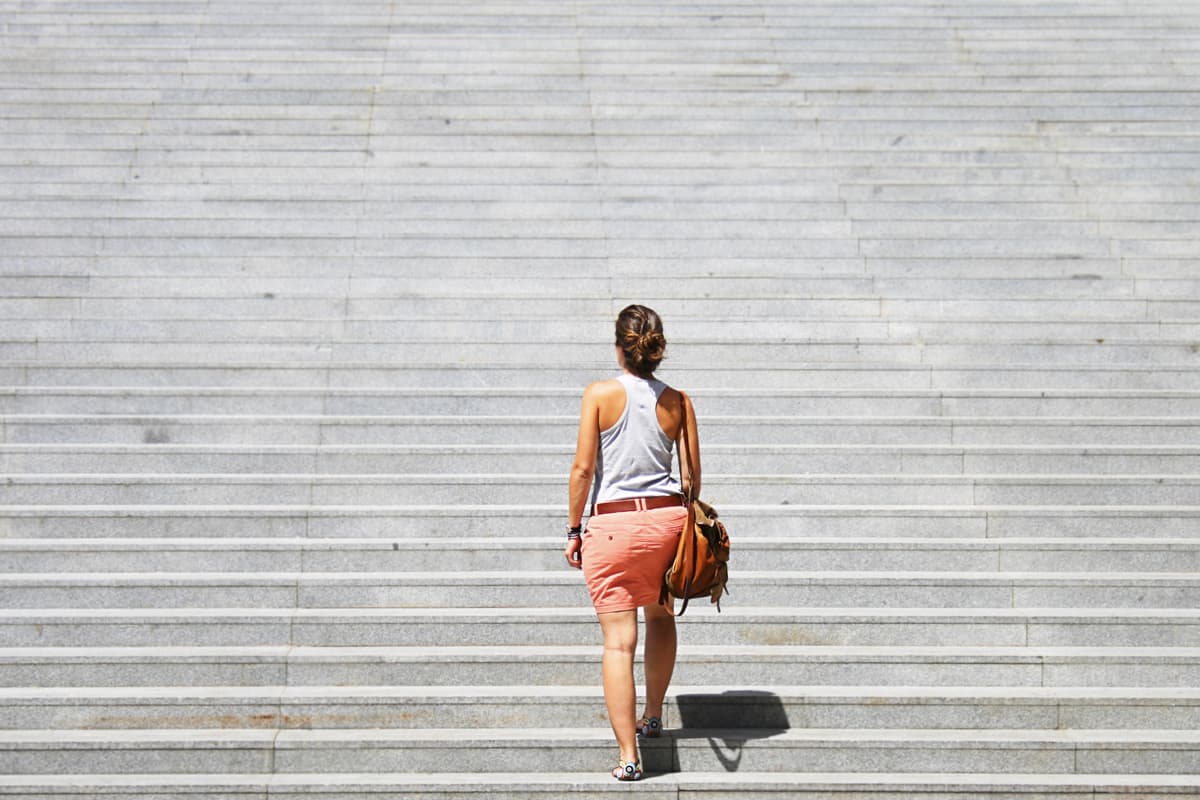Bankruptcy Exemptions in Canada: Province by Province
Safe, secure & confidential
Bankruptcy Exemptions in Canada:Province by Province
We understand that the very mention of the word bankruptcy is enough to make people worry. It is, after all, seen as a last resort, something you only go ahead with when all other attempts to solve your financial problems have failed.
But there are a lot of misunderstandings about bankruptcy. Many people are unaware that there are numerous exemptions that the creditors legally cannot touch, even after you’ve filed for bankruptcy. In Canada, this varies from province to province, but there are certain assets that are universally untouchable.
So, let’s try to clarify some of those misunderstandings about bankruptcy, starting with the biggest question of them all…

Will I lose my home?
No one wants to hear that they are going to lose their home, and this is the biggest stigma surrounding bankruptcy in Canada. There are exemptions to prevent this from happening, but if you have a lot of equity in your home, then bankruptcy may not be the right solution for you.
When you apply for bankruptcy in Canada, you are obliged to use any assets that have equity in them to pay towards your debtors. To put that into perspective, if your home is worth $200,000 and you owe $150,000 on the mortgage, you may have to pay your Licensed Insolvency Trustee the $50,000 in equity to pay towards your debts in order to keep your home.
Imagine if you don’t have long left before your mortgage is paid off in full and you’ve built up a lot of equity – depending on how much debt you owe, this equity could be completely swallowed up by the creditors. So, yes, you would keep your home but there would be no equity in it.
The amount of equity that you would have to forfeit fluctuates depending upon which province you live in (see below) but using your assets to pay for your debts is something that is standard throughout Canadian bankruptcy proceedings. This is why bankruptcy may not be the best solution for everyone and is considered to be a last resort.

Will I lose any other assets when I file for bankruptcy?
There’s a lot of scaremongering surrounding the word ‘bankruptcy,’ but you will categorically not ‘lose everything.’ Yes, you may have to pay something back to your creditors , but you also have to have the means to live day-to-day.
Every territory and province in Canada has its own rules and regulations surrounding how much in the way of equity and assets you are allowed to keep, and there are also varying costs that you have to pay, but, by law, you have to be left with enough for you and your family to get by.
There are some bankruptcy costs that are non-negotiable, irrespective of where you live in Canada, which we’ll explore below.
Personal exemptions according to province/territory
Bankruptcy exemptions in New Brunswick
In New Brunswick, property may be exempt from seizure in bankruptcy depending on the amount of equity that the asset holds. Equity is the difference between the value of the asset and what you owe on it.
For example, if your household car is worth $7,000 and you owe $5,000 on the loan, the equity in the car is $2,000. Under bankruptcy exemptions in New Brunswick, if your vehicle is needed for employment and valued at less than $6,500 you can keep it, so in this example, the car would be exempt from the bankruptcy process.
Other bankruptcy exemptions in New Brunswick include:
- Food and fuel for 3 months
- Work tools to the value of $6,500
- If needed for employment, one vehicle up to the value of $6,500,
- Furniture to the value of $5,000
- Unlimited clothes allowance
- Some pension plans
- Domestic animals and pets
- All medical and health aids
Farmer exemptions:
- Two horses and harness, two cows, ten sheep, two hogs and 20 fowl, and food for them for six months
- Seed grain and potatoes required for seeding and planting, including wheat oats, barley and buckwheat, and 35 barrels of potatoes
Bankruptcy exemptions in Newfoundland & Labrador
In Newfoundland and Labrador, property may be exempt from seizure during bankruptcy proceedings depending upon the amount of equity that is in it. For example, the exemption for a vehicle in Newfoundland and Labrador is $2,000, so if your car is worth $4,000 and you still have $2,000 left to pay for it, you would be allowed to keep it under the bankruptcy exemption laws of the province.
Other bankruptcy exemptions in Newfoundland & Labrador include:
- Up to $10,000 of equity in your home
- Tools of your trade to the value of $10,000
- Food and fuel for 12 months
- One vehicle valued up to $2,000
- Clothing for you and your family up to the value of $4,000
- Household furnishings and appliances up to the value of $4,000
- Sentimental items to the value of up to $500
- No limit on medical and dental aids
- All pets
- Some income and pension plans
Exemptions for farming, fishing and aquaculture:
Personal property worth up to $10,000 to allow you to earn an income
Bankruptcy exemptions in the Northwest Territories
In the Northwest Territories, the amount of equity that you have in an asset will determine whether you will be able to keep it. Let’s use household furniture as an example. Under Northwest Territories bankruptcy exemption laws, you are allowed to keep household furniture worth up to $5,000. If your household furniture is worth $5,000 and you have no outstanding debt attached to it, these items would not be allowed to be seized to repay your creditors.
Other bankruptcy exemptions in the Northwest Territories include:
- Your principal home up to the value of $50,000
- Household furniture worth up to $5,000
- Tools of your trade worth up to $12,000
- All clothing
- Enough food and fuel to last for 12 months
- Hunting tools up to the value of $15,000
- One vehicle worth less than $6,000
Bankruptcy exemptions in Nova Scotia
In Nova Scotia, property may be exempt from seizure in bankruptcy depending on how much equity is left in the asset itself. If we use a van as an example of this; under Nova Scotia province bankruptcy law, if your van is under the $6,500 threshold, it cannot be seized by the creditors to pay for your debts.
To apply that to a real-world scenario, if your van is worth $10,000 and you owe $5,000 on the loan, the amount of equity in the van is $5,000. Therefore, you would get to keep the van as it comes within the $6,500 exemption threshold.
Other bankruptcy exemptions in Nova Scotia include:
- Household furniture to the value of $5,000
- One vehicle up to the value of $6,500
- All clothing
- No limits on fuel and food
- All medical and health aids
- As much grain, seeds or livestock for domestic use that you need
- Tools of your trade and farming equipment up to the value of $7,500
Bankruptcy exemptions in Nunavut
The territorial government in Nunavut will determine whether an asset is exempt from seizure in a bankruptcy proceeding based on the amount of equity that it has in it. Equity is the difference between the $ value of the asset and what you actually owe on it.
Other bankruptcy exemptions in Nunavut include:
- Up to $35,000 of equity in your primary residence
- Food and fuel for 12 months
- No limit on tools of the trade
- No limit on hunting tools
- Some life insurance policies and pensions
- No limit on dental or medical aids
- Household furniture and appliances are unlimited
- No restrictions on the number of clothes you can own
Browse Debt Review Options in Canada
Individual exemptions according to province and territory
Personal exemptions by province/territory
Each province and territory has its own unique list of possessions and assets that are exempt from bankruptcy proceedings. These include:
Below are a few examples of major Canadian territories and the different exemptions they employ when it comes to filing for bankruptcy
You can also click on the following links for information on bankruptcy exemptions in key Harris & Partners locations such as Ontario, Alberta, Manitoba, British Columbia, Saskatchewan, and Canada as a whole.

Why choose us for consumer proposals in Ontario?
Our Licensed Insolvency Trustees can provide a customised consumer proposal that could shrink your debt by up to 80%.
Our multilingual team offers debt support in Farsi, Portuguese, Italian, Tamil, and more, so you can feel comfortable every step of the way.
With offices in nine provinces, we offer in-person debt support across Canada—from Atlantic provinces to Ontario to British Columbia.
Understand bankruptcy exemptions with Harris & Partners
We understand that the process of bankruptcy can feel overwhelming. But, with Harris & Partners, you don’t have to face it alone. We can help you understand the exemptions to bankruptcy, your rights throughout the process and support you in finding your path to financial independence.
Our Licensed Insolvency Trustees have extensive experience in helping people just like you find the debt solutions they deserve. If you’re ready to take control of your finances, get in touch with our specialists today.
It's never too late to obtain debt help. Book your free consultation today
- Phone number
- 800-268-8093
- hello@harrispartners.ca









